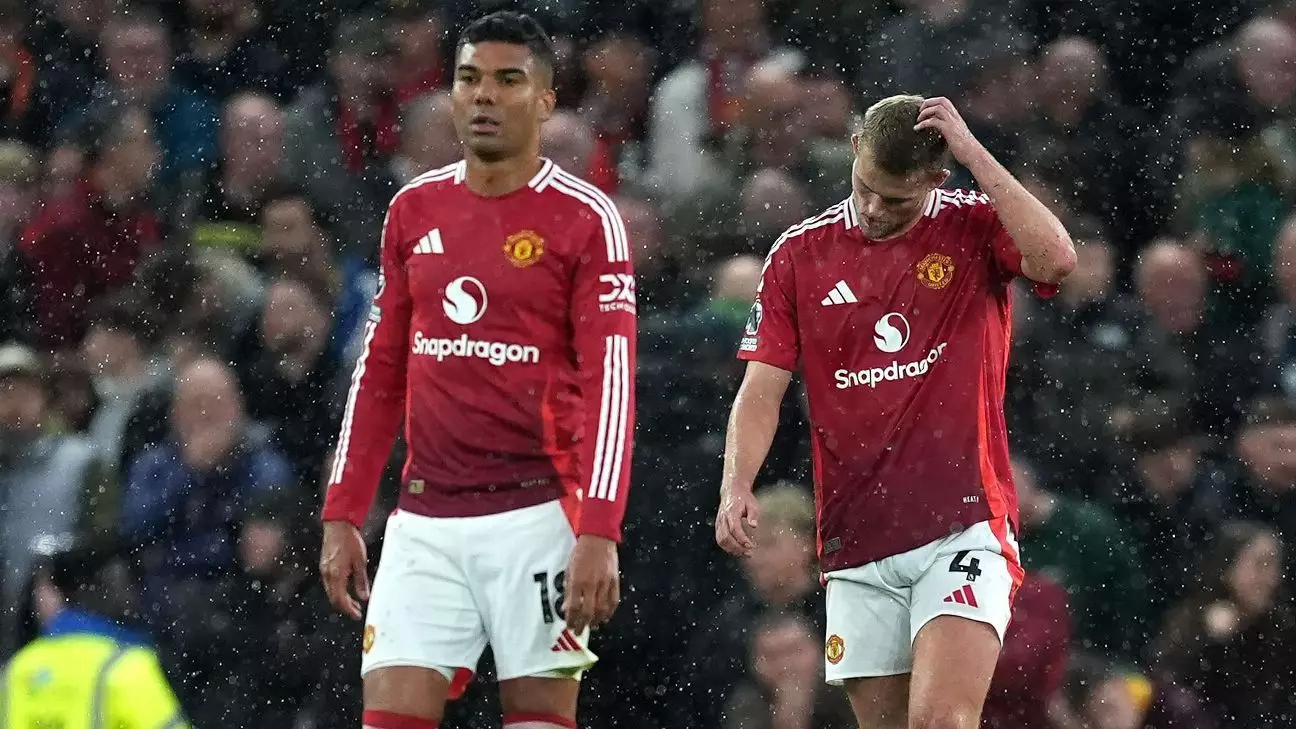The recent 3-0 loss of Manchester United to Tottenham Hotspur at Old Trafford has sent shockwaves through the football community and raised pressing questions about the club’s direction under manager Erik ten Hag. The defeat was not merely a reflection of one bad day at the office; it exposed deeper issues within the team, ranging from poor performance to a lack of cohesion on the field. Historically, Manchester United prides itself on resilience and fighting spirit, yet this match suggested the players were in disarray, failing to heed the manager’s explicit call for a maximum effort.
In Erik ten Hag’s pre-match notes, he underscored the necessity of commitment, stating unequivocally, “Only 100% will do.” His remarks came in the wake of Christian Eriksen’s comment regarding their previous draw with FC Twente, where he indicated that the opposition “wanted it more.” The expectation was clear: a shift in mentality was needed. However, nothing of the sort materialized during the match against Spurs. With the team’s performance significantly deteriorating—worse than even during the disheartening draw days earlier—questions arise regarding the players’ dedication and readiness to compete at a top-tier level.
Analyzing the details of the match, one must ponder whether the defeat was inevitable, given the evident tactical failures on display. From the onset, Tottenham appeared far more organized and assertive on the pitch. Brennan Johnson’s early goal was merely a harbinger of the chaos to ensue, with the United defense appearing porous and unprepared. It was alarming to note how often United players ceded possession, failed to contest duels, and neglected to track their opponents effectively. The lazy defending that allowed Johnson to score encapsulated a lack of urgency and professionalism in a match where every player should have been at their peak performance.
As the game progressed, the situation exacerbated, with Bruno Fernandes facing a straight red card. This moment not only diminished the team’s chances but highlighted the players’ failure to adhere to the basics of football; decision-making in high-pressure scenarios seemed absent altogether. When Fernandes slipped while attempting to contain Maddison, it represented not just a physical mistake but a mental lapse that resonated throughout the remaining players.
The issues extended beyond individual errors; they reflected a collective malaise within the squad. The second goal, resulting from a loss of a 50-50 challenge, once again highlighted a lack of grit and fighting spirit that should be synonymous with the Manchester United ethos. Even as substitutions were made and tactical adjustments were attempted, the team could not recover from the rapid succession of setbacks.
Erik ten Hag is now faced with a palpable dilemma. Despite achieving success in past seasons, the shadows of past victories are dwindling under the weight of a dismal start to the current campaign. The managerial confidence that came after winning trophies is now under scrutiny, with lingering doubts about how long he can continue to salvage the remnants of his authority within the club. The unity he speaks of—the combined effort of the ownership, staff, and players—seems more conceptual than real, as disillusionment takes root among fans and players alike.
Moreover, the expectation to perform against formidable opponents such as FC Porto and Aston Villa looms dangerously, with the pressing need to secure tangible results. The landscape becomes ever more perilous: too many lackluster displays could prompt scrutiny from the board and fans alike, potentially jeopardizing Ten Hag’s tenure at the club. The booing at the final whistle hinted at the disapproval simmering among the supporters, a stark contrast to the adulation previously afforded to the manager.
In light of such disappointments, a strategic reassessment is crucial for both the players and coaching staff. Ten Hag’s comments about needing time to reconfigure the squad underscore an awareness that immediate changes are not always feasible. However, the call for accountability remains essential. Players must take ownership of their performances and recommit to the principles that define Manchester United. Skills, tactics, and cohesion should be paramount moving forward, as uniting as a team is the only way to navigate through these turbulent times.
The path for Manchester United is fraught with challenges but not insurmountable—if the right steps are taken. Acknowledging issues, forging stronger collaborations, and ensuring robustness in performance delivery could steer Manchester United away from this current stagnation. The time for reflection, commitment, and a shared vision must prevail if the storied club is to reclaim its elite status. The pulse of Manchester United requires a revival, and it must start now.

